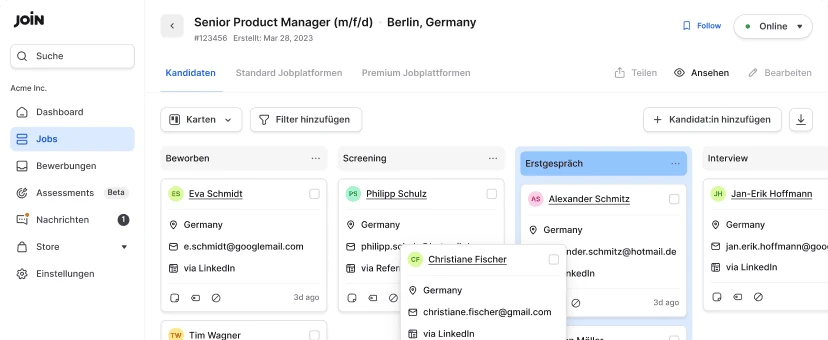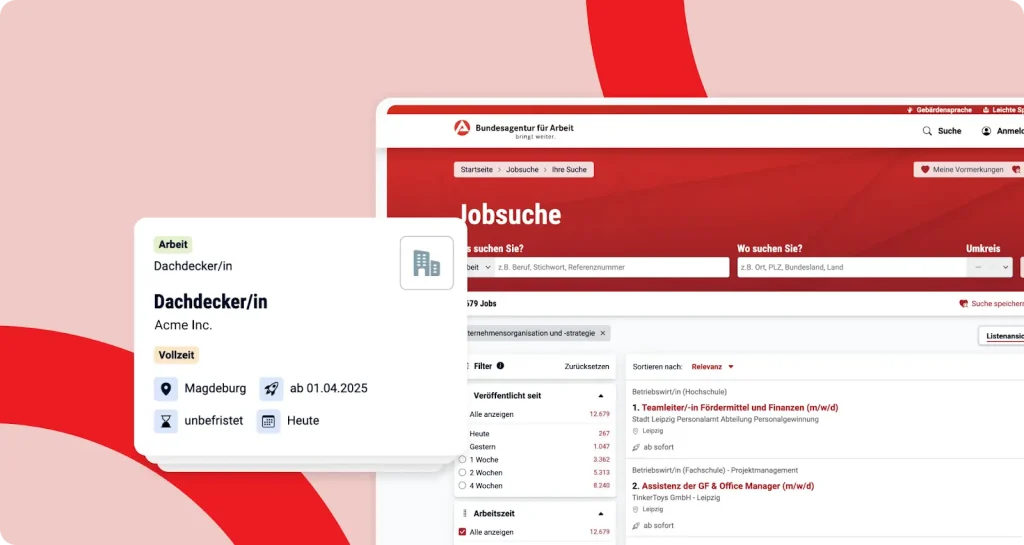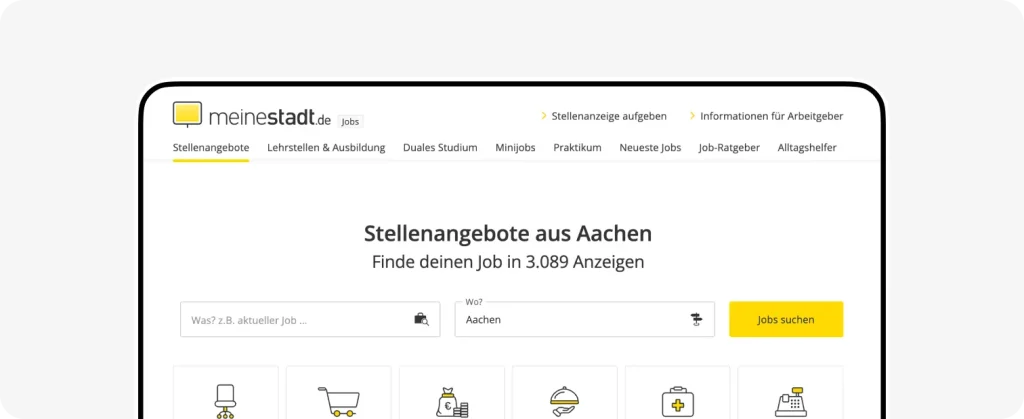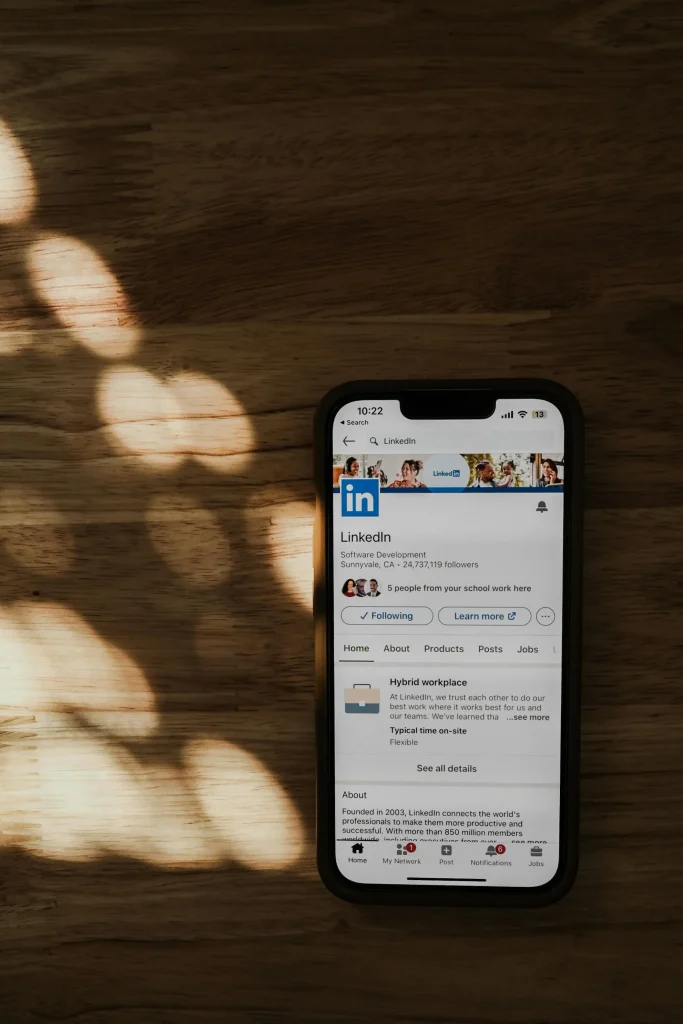Best interview questions for your hiring process
Line Cook Interview questions
Line Cooks are efficient and talented kitchen staff who help to speed up the food preparation process by cleaning, sanitising, and stocking kitchen work stations. They will be fully trained in food and beverage safety and able to utilise a mix of kitchen tools and equipment.
These are some of the most important Line Cook skills your candidate should have:
• A certification or qualification in food and kitchen safety.
• Proven experience working with food.
• Ability to closely and efficiently follow instructions.
• Great team working ability.
• High level of understanding of kitchen cleaning products and equipment.
Interviewing a Line Cook
The Line Cook plays a critical role in the kitchen procedures of a business. They help to gather, clean, and prepare ingredients for a dish, ensuring that the Chefs are able to jump right into the cooking process without delay.
For this role, a certain set of skills is highly desirable, so identifying these during the interview process is important. That’s why we’ve come up with these example Line Cook interview questions to get you started.
As these questions are designed for use at the start of your interview process, they’re kept quite general. This will help to establish early on whether a candidate is a right fit for the role or not. Later in the process, more business-specific questions may be needed.
How to open the job interview
Many interviewers may think that the best way to get an overview of a candidate’s fit in the company is to jump right in with the challenging questions. However, this can actually have the opposite effect.
Most candidates perform better in an interview they feel comfortable. Therefore, beginning the process with a few warm-up questions will help your potential hire settle into the conversation and show off their full personality and skills.
Best interview questions for your hiring process
See our Line Cook job description hereFor the interview
A positive opener to start
How did you choose to become a Line Cook?
What is a moment in your career you feel particularly proud of?
Behavioral Questions
Can you give an example of a dish or restaurant that inspires you in your career?
Describe a time you’ve had to prepare ingredients that you find challenging or struggle with? How did you overcome this?
As a Line Cook, your candidate will have to work with a range of different ingredients, some of which they’ll be more familiar with than others. Knowing how they approach this kind of challenge will help you to envision how they will fit into your team.
Tell me about a time you made a mistake when preparing ingredients, what were your next steps, and how did you learn from this?
All Line Cooks will make mistakes from time to time, and this doesn’t mean they aren’t the right choice for the job. Knowing they can overcome these mistakes with minimal interruptions is what is important.
What has been the largest or most challenging dish you have taken part in preparing, and what did you learn from this?
Knowing what large tasks a candidate has dealt with previously will help you better imagine how they will fit into your business. Plus, this answer will give you an insight into how an individual uses their experiences to grow.
Soft Skills
When working as part of a team to prepare a dish, how would you communicate to a colleague that their work wasn’t up to standard?
This may be a situation your Line Cook finds themselves in from time to time. Here you will gain a deeper understanding of a candidate’s communication skills and techniques, which are essential in such a collaborative environment.
If two members of your team were disagreeing on how to prepare an ingredient, how would you help to solve the problem?
Again, this answer will help to assess your potential hire’s communication ability. They should be able to accurately describe how they would approach their colleagues and use their expert knowledge to diffuse the problem.
If you were faced with a challenging dish or ingredient that you weren’t confident in preparing, how would you overcome this?
A Line Cook should have the problem-solving and communication skills to navigate this situation. They should either be able to check a recipe or ask the Sous Chef for advice on this particular ingredient, as quickly as possible to avoid any further disruption.
What skills do you have that make you the perfect Line Cook?
Here you’ll get an idea of the candidate’s confidence, as well as an insight into their personal skill set. They may mention both hard and soft skills here.
Hard Skills
What cuisines have you worked with in your previous roles?
This answer will give you an understanding of how well a candidate’s experience fits with your business. You will also get an idea of what, if anything, they will need onboarding on in this area.
What kitchen tools and equipment do you have the most experience working with?
The ability to work with different types of kitchen equipment is one of the most important Line Cook skills. Here, you will get an insight into what tools they will need onboarding with and if they have any new skills that can be brought into your team.
What formal training have you undergone that will help you in this role?
A Line Cook can receive several qualifications that may prepare them for this role. These can vary from food safety courses to dish presentation classes. Knowing which of these, if any, your candidate has taken will help you assess their skills better.
Which food allergies or dietary requirements have you tailored to in the past? How comfortable are you in this area?
Knowing your candidate can properly substitute or leave out ingredients to help tailor dishes to different dietary needs is a huge priority in this role. Here, you’ll get a better understanding of how much experience they have in this area.
Do you have any experience with curating or helping to design menus?
This question will not be relevant for every restaurant, however, it is good to know whether your Line Cook has helped to influence this area previously.
Operational / Situational Questions
Imagine your colleague is running behind on their preparation and orders are beginning to build up. How would you help to get things back on track?
Restaurants can quickly become overwhelming if tasks aren’t completed quickly. Here, your candidate will be able to call on their knowledge to explain how they could rectify this situation. This could involve advising their colleague on a better way to do prepare an ingredient, or reprioritising tasks.
Imagine you are given the opportunity to join our team as a Line Cook, what would be the first steps you took during your first shift?
A great quality for a Line Cook to have is initiative. Your Line Cook should be able to mention familiarising themselves with the layout of the kitchen, the whereabouts of certain ingredients and tools and their workstation. They could also mention getting to know the Head and Sous Chefs and their ways of working.
Imagine you notice a colleague make a mistake when preparing their ingredients, how do you approach this issue?
Here, it is essential that your potential Line Cook brings this up with the colleague. Food safety and quality are essential aspects of any food-related business. A candidate could mention quietly taking the colleague aside and pointing out the mistake while advising the correct way to prepare the ingredient. This should be done as soon as possible to avoid disruption to the workflow or customer experience.
Imagine you received negative feedback from a customer on how a dish you prepared is presented. How would you learn from this?
This is an unfortunate part of any food-service role. Here, your candidate could mention making a note of this feedback and either practising their technique or asking the Head or Sous Chef for some pointers to help them better perform next time.

Start hiring and prepare your interview
All platforms are available for you to promote your job through JOIN.
Create job ad for free


An ideal Line Cook will have a strong passion for the culinary field. This will give you an example of whether the candidate knows the industry, and the types of dishes they enjoy.